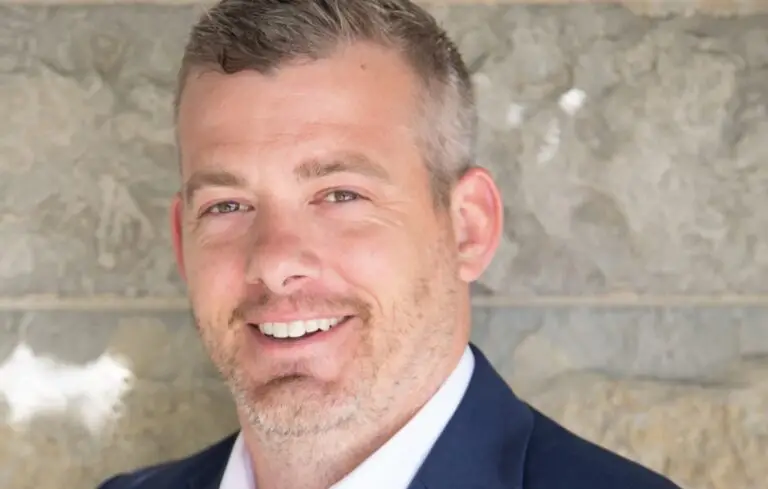
CEOs agree we’re living in a VUCA world. VUCA stands for volatility, uncertainty, complexity, and ambiguity. Various CEOs say they’re seeing all aspects of it. Here are five on their strategy during uncertain times.
A Constant Drumbeat
BOB LEDUC, President, Pratt & Whitney, $15.1 billion (revs), 33,500 employees
“I view my most important responsibility to be setting the vision, longer-term mission and near-term objectives of the enterprise. I also need to set expectations about the company culture that’s needed to achieve our goals. It’s then the job of the broader leadership team to cascade these concepts through their organizations to ensure alignment from top to bottom.
And I make a point of reinforcing them constantly in large forums like global employee town hall meetings and executive conferences and in smaller settings like individual performance conversations. I ask my direct reports to tell me what, specifically, they are doing to advance the company’s mission and to foster our desired culture. I expect them to ask the same questions of their teams.
In October, former Google Talent Chief Laszlo Bock will keynote Chief Executive’s CEO Talent Summit at West Point, sharing exclusive insights into what makes great teams, and great leaders.
Click Here for event information.
I really believe that it’s not enough to set these expectations once, then move on. A constant drumbeat is needed to maintain focus and is especially important during times of change or challenge.”
Communicate and Share
JOE DEPINTO, CEO, 7-Eleven, $84.5 billion (2015 revs), 31,500 employees
“We do a national video call with all of our field operators every two weeks. It’s about a two-hour call. There are probably 4,000 or so people on the call. They are all linked in. We zero in on a part of the strategy that we want to talk about. They all understand the overall strategy, but we constantly reinforce the importance of executing the strategy this way. We also share case studies of how others across the organization have been successful or have tried different ways to improve different parts of our strategy and have either been successful or failed. They actually get up there and teach their peers and go through their case study in a national forum.”
Instill Peer Learning
TONY GUZZI, CEO, EMCOR, $7.6 billion (revs), 33,000 employees
“We have a very extensive set of what I would describe as peer learning and job learning [programs]. We have peer groups around building information modeling. The CEOs have peer groups around different construction techniques. We have peer groups around safety. Then, we reinforce those peer groups all the time. Plus, we have a lot of communication that goes around those peer groups. When they get together, it’s usually around a learning event—and we’ve taken that down multiple levels. So we have a superintendents’ peer group once a year for mechanical.
We have a superintendents’ peer group for electrical. We have a superintendents’ peer group for service managers. We have a peer group around different kinds of estimating. Now, some will say, ‘Hey, we see this need,’ and we’ll start connecting to different people in the organization, and then we’ll develop a peer group around that. So, there’s an extensive group of peer learning that goes on here.”
Join us at West Point this October for 2018 CEO Talent Summit. Keynote: Laszlo Bock, CEO of Humu, Inc., Author, and Former SVP of People Operations at Alphabet / Google. Co-Hosted by Thayer Leader Development Group. Register today!
Pull People Up
MARGARET KEANE, CEO of Synchrony Financial, $13.5 billion (revs), 15,000 employees
Under Keane, Synchrony developed two to-three-day academies for functions, such as credit, finance and technology. Keane also instituted a range of leader development programs. The company’s STEP Program prepares high potential, non-exempt individuals for management positions.
“We have a lot of non-exempt employees, many in call centers, and the STEP Program is focused on helping them advance. This is a two-year rotational program using experiential learning and development to help them grow out of the non-exempt ranks into the exempt ranks and become managers of people; we’ve had real success with the program. The other positive is that there is a lot of diversity in our non-exempt staff, so we’ve been able to pull people up through the organization and increase diversity in our ranks.”
Consider the What-Ifs
MIKE FUCCI, Chairman of Deloitte, $18.6 billion (U.S. revs), 84,000 U.S. employees
“I’d say the same things that are affecting our clients are affecting us, which is artificial intelligence, robotics, cognitive technology. Our clients are struggling with the question of how they incorporate these innovative technologies into their day-to-day operations. Therefore, if we’re going to consult with them, we need to be ahead of the curve and help them decide how they use this technology. The days when you got by using just the experience you had are gone. We have to anticipate things that aren’t even fully baked yet, but it’s mostly around technology. I call it the ‘everything is a what-if scenario.’
[I]t’s almost a 180-degree difference [from when I joined the firm] as to what people need to be learning and how they learn. We don’t work in offices anymore. We have people in London on the phone with people in New York… people in South Carolina. The way we work is so different that training and learning [are different]. It’s more like an extension of college, as opposed to a way to actually help you build skills that help clients solve problems.
When people enter different levels of their career, we do a lot of work with new senior managers and new partners; it’s helping them learn how to operate differently in those roles, and it’s not just what got you to where you are doesn’t work at the next level. It used to be that that technical experience was all you needed—you had a deep knowledge in something, and you brought that knowledge to clients.
We have to stay in front of disruption with our clients. As the chairman, one of the things that actually concerns me a lot is, how do we govern over disruption? It’s hard enough to manage over disruption. How do we govern over it? So, how do I build really nimble leaders to be able to address a little bit of the unknown? That’s why the VUCA analogy resonates with me, because it’s really more about building leadership than it is about building technical skills.”






